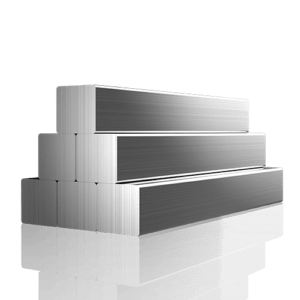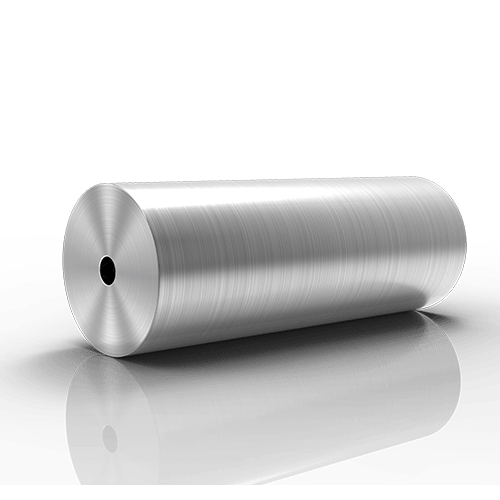Welcome to My Blog!
Before we dive into the content, I’d love for you to join me on my social media platforms where I share more insights, engage with the community, and post updates. Here’s how you can connect with me:
Facebook:https://www.facebook.com/profile.php?id=100090063158454
Now, let’s get started on our journey together. I hope you find the content here insightful, engaging, and valuable.
Introduction

316L stainless steel is a low-carbon version of the 316 alloy, which makes it an ideal choice for applications that require improved weldability and resistance to corrosion. The “L” in 316L stands for “Low Carbon,” which enhances its strength and durability, making it especially suitable for environments with high chloride content, such as marine and chemical processing industries. This unique property is one of the reasons why many leading 316L stainless steel manufacturers prioritize it for producing high-performance materials.
This material is also highly resistant to pitting and crevice corrosion, which often occurs in environments exposed to salts, acids, and industrial chemicals. Because of its superior resistance to these harsh conditions, 316L stainless steel is favored by top 316L stainless steel manufacturers for use in a variety of critical applications. As a result, many industries trust 316L stainless steel for high-performance applications, including:
- Medical devices
- Food processing equipment
- Marine environments
- Chemical tanks and piping
- Aerospace components
Understanding the characteristics and advantages of 316L stainless steel is the first step toward selecting the right manufacturer for your needs.
Key Features to Look for in 316L Stainless Steel Manufacturers
When evaluating potential 316L stainless steel manufacturers, it’s essential to consider several factors that ensure you are partnering with a reliable and capable supplier. Below are the key features to look for:
Experience and Reputation in the Market
The most trusted 316L stainless steel manufacturers have years, if not decades, of experience in the industry. Established companies with a long track record of successful projects demonstrate their reliability and expertise. Additionally, customer reviews, case studies, and industry certifications can provide insight into a manufacturer’s reputation.
Material Certification and Quality Control
Reputable 316L stainless steel manufacturers provide material certifications, such as ASTM, ISO, or other relevant quality standards, that guarantee the material meets the required specifications. Their manufacturing processes should include rigorous quality control measures to ensure consistency and the highest performance standards.
Production Capabilities and Customization
Different applications demand various forms and sizes of 316L stainless steel. The best 316L stainless steel manufacturers will offer a wide range of products, including sheets, plates, tubes, rods, and custom fabrications. Whether you require standard dimensions or specialized sizes, top 316L stainless steel manufacturers should have the capacity to provide these options. If your project requires special dimensions or custom features, partnering with a manufacturer capable of delivering tailored solutions is crucial. Working with trusted 316L stainless steel manufacturers ensures that you receive the exact product specifications needed to meet the unique demands of your application.
Technical Support and Customer Service
Manufacturers that offer excellent technical support and customer service can make a significant difference in your overall experience. Whether you need help with material selection, custom designs, or troubleshooting issues during production, reliable customer support can ensure that your project runs smoothly.
On-Time Delivery and Cost-Effectiveness
Time is often a critical factor in industrial projects. A trusted manufacturer should have a proven track record of delivering high-quality 316L stainless steel products on time, every time. Moreover, while price is important, it should never compromise quality. Look for manufacturers who offer competitive pricing while maintaining the high standards required for 316L stainless steel products.
Comparing Key Specifications of 316L Stainless Steel from Different Manufacturers

In the table below, we compare some common specifications of 316L stainless steel from different manufacturers. This comparison helps highlight the general dimensions, strength, and corrosion resistance you can expect from 316L stainless steel products in various forms.
| Specification | Standard Size | Tensile Strength | Corrosion Resistance | Common Uses |
|---|---|---|---|---|
| 316L Stainless Steel Sheet | 4ft x 8ft, 4ft x 10ft | 70,000 – 80,000 psi | Excellent resistance to pitting and crevice corrosion | Medical, marine, chemical tanks |
| 316L Stainless Steel Plate | 1/4 inch – 6 inches thick | 70,000 – 85,000 psi | Superior resistance to saltwater and acidic environments | Aerospace, automotive, food industry |
| 316L Stainless Steel Tube | 1/4 inch – 12 inches OD | 70,000 – 80,000 psi | High resistance to chloride-induced stress corrosion cracking | Pharmaceutical, chemical processing |
| 316L Stainless Steel Bar | 1/2 inch – 12 inches dia | 70,000 – 85,000 psi | Exceptional resistance to high temperatures and harsh chemicals | Industrial piping, marine |
| 316L Stainless Steel Rod | 1/4 inch – 8 inches dia | 70,000 – 75,000 psi | Outstanding resistance to oxidation and corrosion | Electrical, automotive |
This table presents a broad overview of typical product dimensions and material properties. Depending on the manufacturer, these specifications may vary slightly, but in general, these properties hold true across most reputable suppliers of 316L stainless steel.
How to Evaluate a 316L Stainless Steel Manufacturer

Evaluating a manufacturer’s capabilities involves more than just checking certifications and product quality. To make a well-rounded decision, consider the following steps:
Visit Manufacturer Facilities or Request Site Visits
If possible, visiting the manufacturer’s facilities or requesting an on-site tour can give you a better sense of their production capacity, equipment, and overall operations. During the visit, you can assess their quality control processes, material handling, and adherence to safety protocols.
Assess Customer Service and Responsiveness
Good customer service is essential for smooth project execution. Reach out to potential manufacturers and assess their responsiveness. How quickly do they respond to inquiries? Are they willing to answer your questions in detail? This interaction is a key indicator of how they will handle future communications.
Review Their Portfolio and Case Studies
Reputable manufacturers often provide case studies and detailed portfolios of previous projects. Reviewing these can give you an understanding of the manufacturer’s experience in your industry and how their products have been applied in real-world scenarios.
Verify Certifications and Standards Compliance
Ensure the manufacturer complies with industry certifications, such as ISO 9001 for quality management, or ASTM A240 for stainless steel specifications. These certifications verify that the manufacturer follows strict guidelines in their production process and can consistently meet industry standards.
Conclusion: How to Choose the Right 316L Stainless Steel Manufacturer

Selecting the most trusted 316L stainless steel manufacturer is essential for ensuring the success of your project. By focusing on key factors such as reputation, material certification, production capabilities, and customer service, you can make an informed decision that aligns with your requirements. Additionally, comparing the specifications of 316L stainless steel products from different manufacturers helps you assess their suitability for your application.
Remember, the best manufacturers not only offer high-quality materials but also provide excellent customer support, timely delivery, and tailored solutions. Whether you are purchasing for a large-scale industrial project or a specialized application, choosing the right manufacturer will ensure that your investment delivers optimal performance and longevity.
FAQ
What makes 316L stainless steel different from 316 stainless steel?
The primary difference is the lower carbon content in 316L stainless steel. This reduction in carbon improves its weldability and reduces the risk of sensitization, making it a better choice for high-temperature and high-corrosion environments.
How do I know if a 316L stainless steel manufacturer is reliable?
A reliable 316L stainless steel manufacturer should provide clear material certifications, demonstrate a solid reputation in the industry, and offer responsive customer service. You can also check for customer reviews or case studies to assess their performance.
Can 316L stainless steel be used for welding?
Yes, 316L stainless steel is ideal for welding due to its low carbon content. It helps avoid carbide precipitation, which can compromise the material’s corrosion resistance in welded areas.
Is 316L stainless steel suitable for marine applications?
Yes, 316L is commonly used in marine environments due to its excellent resistance to corrosion, pitting, and crevice formation, especially when exposed to saltwater.
What industries typically use 316L stainless steel?
316L stainless steel is used in a wide range of industries, including medical devices, food processing, chemical and petrochemical, marine, aerospace, and automotive industries, among others.
